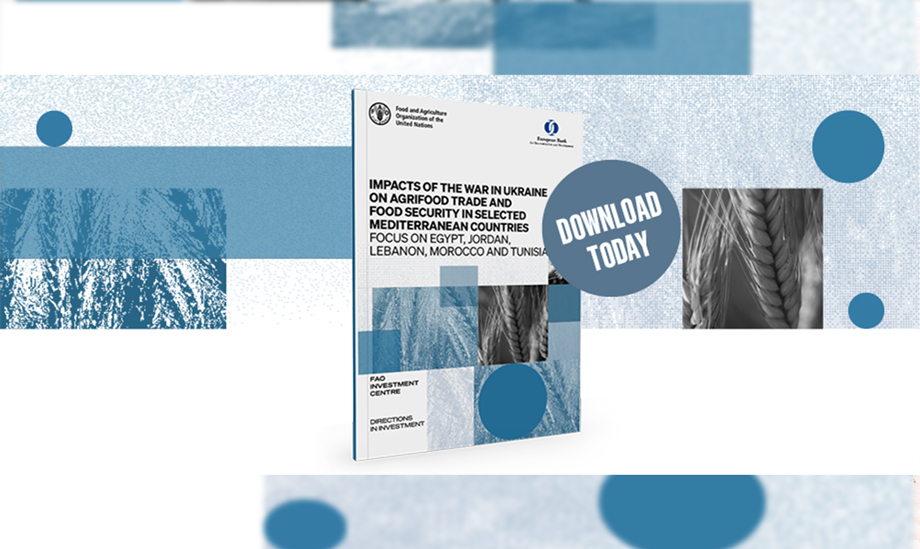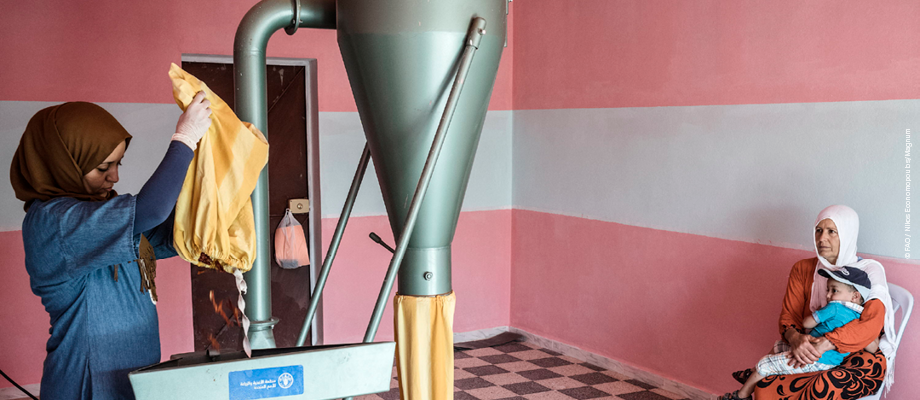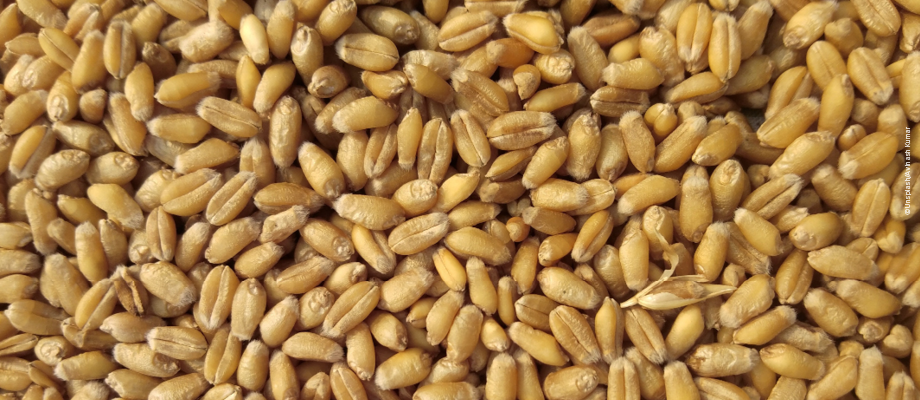War in Ukraine intensifies food security risks in the Southern and Eastern Mediterranean

The report, developed by FAO and the European Bank for Reconstruction and Development (EBRD), focuses on the implications of the war in Ukraine on agrifood trade and food security in Egypt, Jordan, Lebanon, Morocco, and Tunisia.
“The war in Ukraine will be a serious hardship for low-income, food import-dependent countries and vulnerable populations – including in the Southern and Eastern Mediterranean,” said Mohamed Mansouri, Director of the FAO Investment Centre. “Coordinated agriculture and trade policies, as well as targeted import finance support, are urgently needed to address the immediate crisis for people most in need – and to avoid the worst impacts of intensifying regional and global food insecurity.”
The region is one of the top importers of food staples in the world – with Egypt being the world’s leading importer of wheat. Record-high global prices for food, and especially wheat, mean that sourcing food internationally drives up these countries’ food import bills.
The global food import bill is expected to reach USD 1.8 trillion in 2022, an all-time high, almost entirely on account of higher prices and marking a further increase of 3% from last year’s record high. This, in turn, could lead to further increase in hunger and malnutrition globally.

Collateral damage to agriculture
The Russian Federation and Ukraine are leading exporters of cereals and sunflower oil, while the Russian Federation is also a key global supplier of fertilizers and energy. In 2021, wheat exports from the Russian Federation and Ukraine accounted for about 25 percent of world wheat exports, while the two countries combined supplied approximately 75 percent of wheat imports for Egypt and Lebanon, 40 percent for Tunisia, and more than 30 percent and 20 percent for Jordan and Morocco, respectively.
Approximately 20–30 percent of the area sown with winter crops is likely to remain unharvested due to the war. Overall, the reduction in harvested areas and limited access to inputs are expected to result in a decrease in yields and cereal production by 40 percent compared to the previous year.
Increase in food prices and food insecurity
Since the start of the war, global food prices – already standing at record highs in 2021 – have soared even higher. The international supply gap for cereals, sunflower seeds and fertilizers could lead to an even more concerning upsurge in global food and feed prices, FAO-generated scenarios indicate.
High energy and fertilizer prices and export bans are also contributing to push up prices, as international markets respond to government trade policies imposed as a result of the war such as export bans on wheat in India and the short-lived export ban imposed by Indonesia on palm oil. The Southern and Eastern Mediterranean countries have also implemented export bans for some cereals, oils, fruit and vegetables.
FAO simulations considering a severe reduction of exports from the Russian Federation and Ukraine of 25 million tonnes of wheat and maize, 5 million tonnes of other grains and 3 million tonnes of oilseeds in 2022, suggest that this could lead to a 3.4 percent increase in the number of undernourished people in the Southern and Eastern Mediterranean. equivalent to around 288 400 additional people becoming undernourished.

From immediate response to long-term strategies
“Southern and Eastern Mediterranean countries are taking actions and implementing far-sighted measures to contain the crisis,” said Natalya Zhukova, Director, Head of Agribusiness. “EBRD has responded quickly and decisively to the war in Ukraine, through our initial EUR 2 billion Livelihood and Resilience package to support the country and neighbouring countries. Indeed, reintegrating Ukraine's food production back into the global market is vital. Additionally, we are providing financing in SEMED, where the potential for food insecurity is high.”
Access to loans, aid and investment from international financial institutions could reduce the impact of rising food bills, supporting vulnerable populations to access affordable food.
“To prevent a massive increase in people going hungry, FAO calls for every effort to be made to keep international trade in food and fertilizers open, while the importing countries should commit to comprehensive long-term food security strategies,” said Ekaterina Krivonos, Senior Economist in FAO’s Markets and Trade Division, and a lead officer on the report.
In the longer term, governments are urged to consider boosting their social protection systems and reviewing their food subsidy and stockholding programmes as well as their import regimes for key staples, to prepare for long-term food security challenges and future shocks. Diversifying import sources would also help to protect against future disruptions occurring in major supplier countries.
FAO and EBRD also encourage countries in the Southern and Eastern Mediterranean to adopt new agricultural technologies – which are climate-smart and resilient – with a view to increasing local and national production of staple food items in a sustainable way.
